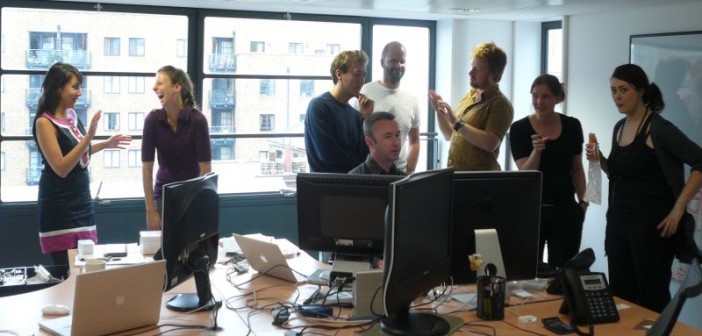Most employees would rate the first one as a far better worker than the other. However, a study conducted by the University of Toronto on lunch break patterns of office workers found that the absence of a proper lunch could actually lower productivity.
While it has been known that taking frequent breaks is good for productivity, focus and creativity, very few seems to be actually taking such a step for fear of being branded a slacker.
According to John Trougakos, associate professor of Organizational Behavior & HR Management, who co-authored the study, the brain has a limited pool of psychological energy.
All efforts at controlling behavior, performance and focusing on the task draw on that pool of psychological energy and once it gets depleted, efficiency level also drops, he said.
However, they took regular breaks of 17 minutes for every 52 minutes spent at work. While the period of work was marked by intense purpose, the resting time allowed the brain to get refreshed enough to prepare for the next session of work.
Taking a break of 17 minutes after every 52 minutes of focused work allows the brain to refresh itself and results in increased productivity
“Turns out, the secret to retaining the highest level of productivity over the span of a workday is not working longer—but working smarter with frequent breaks,”wrote Canadian-born tech enthusiast and writer Julia Gifford in ‘The Muse’ posting the study results. Productivity experts concur with the findings.
The Draugiem Group’s study highlights what researchers have been saying for years—that our brains simply weren’t built to focus for eight-full hours a day. “The best way to refresh your focus is to step away and take a break,” says productivity expert Cathy Sexton, who says the results of The Draugiem Group’s study aren’t surprising.
What was particularly surprising about the study’s results, however, was what the most productive individuals did during their breaks. “Those 17 minutes were spent completely away from the computer—not checking email, not on YouTube” Gifford said.
Taking a walk, chatting with co-workers (not about work), or relaxing reading a book were some common activities the most productive employees did while on break.
Gifford says employees need not be compelled to look as if they are working hard by putting in longer hours at the desk. Managers, in turn needs to convey to the employees that taking a break would not be considered as a sign of laziness or lack of productive work.
Thus, divide daily calendar to include breaks, ideally every 52 minutes.
Set a timer as remainder to take a break and when to return to work.
Make realistic to-do lists factoring in time need to carry out the tasks.
Prioritize tasks. Choose three major tasks to focus on for the day and add other tasks as they pop up throughout the day to a separate list, readjusting priorities throughout the day if required. It’s a lot easier to look at a list of three tasks than 30. Once he first three items are done, choose the next three priorities in the list.




